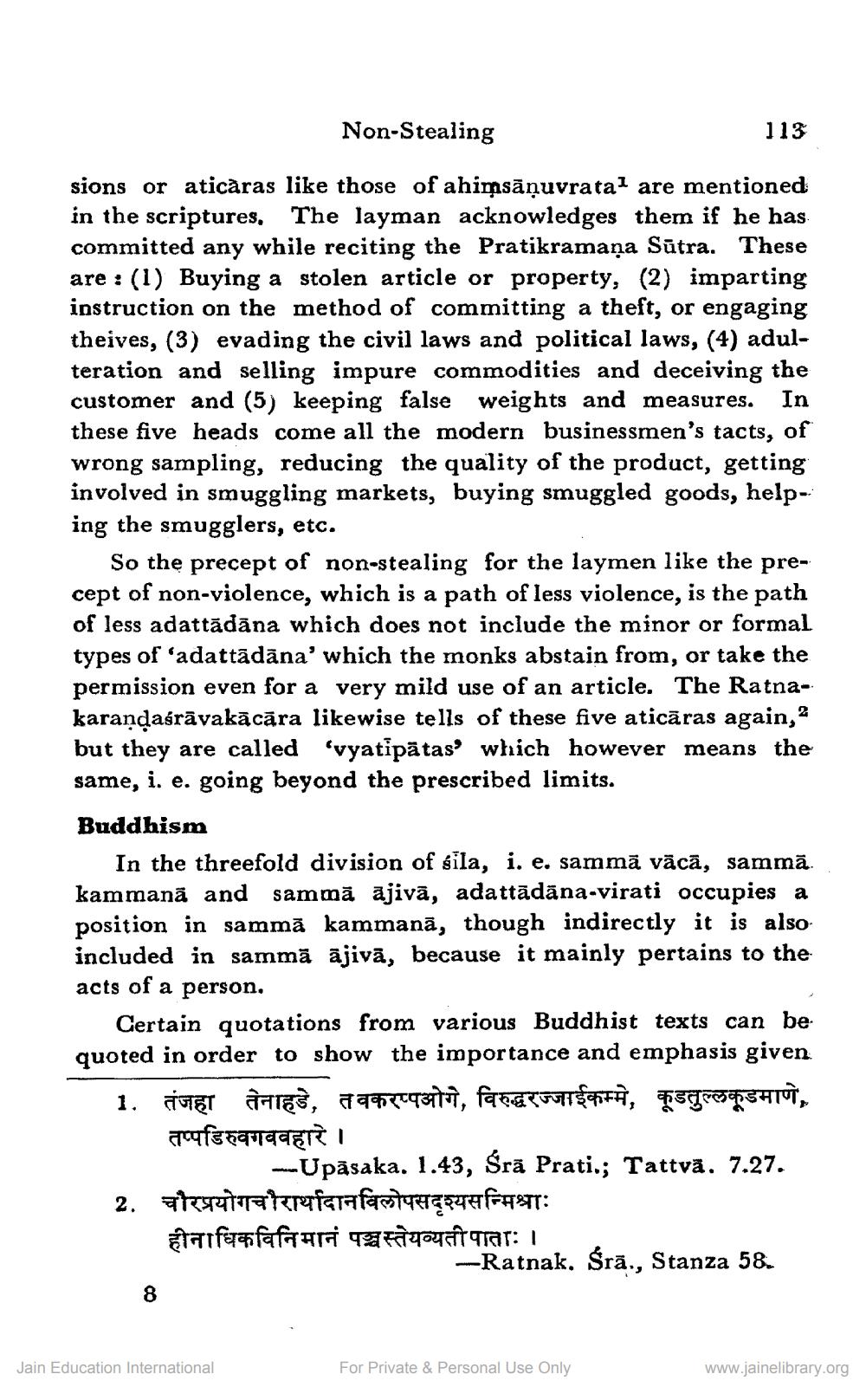________________
Non-Stealing
113
sions or aticàras like those of ahimsāņuvratal are mentioned in the scriptures. The layman acknowledges them if he has committed any while reciting the Pratikramana Sūtra. These are : (1) Buying a stolen article or property, (2) imparting instruction on the method of committing a theft, or engaging theives, (3) evading the civil laws and political laws, (4) adulteration and selling impure commodities and deceiving the customer and (5) keeping false weights and measures. In these five heads come all the modern businessmen's tacts, of wrong sampling, reducing the quality of the product, getting involved in smuggling markets, buying smuggled goods, helping the smugglers, etc.
So the precept of non-stealing for the laymen like the precept of non-violence, which is a path of less violence, is the path of less adattādāna which does not include the minor or formal types of 'adattādāna' which the monks abstain from, or take the permission even for a very mild use of an article. The Ratnakarandasrāvakācāra likewise tells of these five aticāras again, but they are called "vyatipātas' which however means the same, i. e. going beyond the prescribed limits. Buddhism
In the threefold division of sila, i. e. sammā vācā, sammā. kammanã and sammā ajivā, adattādāna-virati occupies a position in sammā kammanā, though indirectly it is also included in sammā ājivā, because it mainly pertains to the acts of a person.
Certain quotations from various Buddhist texts can be quoted in order to show the importance and emphasis given 1. तंजहा तेनाहडे, तवकरप्पओगे, विरुद्धरज्जाईकम्मे, कूडतुल्लकूडमाणे, तप्पडिरुवगववहारे ।
-Upāsaka. 1.43, Śrā Prati.; Tattvā. 7.27. 2. atsitrat referaattua STT: हीनाधिकविनिमानं पञ्चस्तेयव्यतीपाताः।
--Ratnak. Śrā., Stanza 58.
Jain Education International
For Private & Personal Use Only
www.jainelibrary.org




